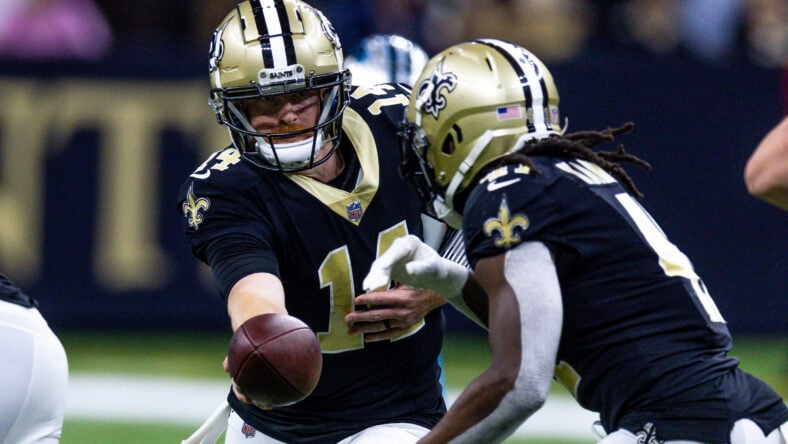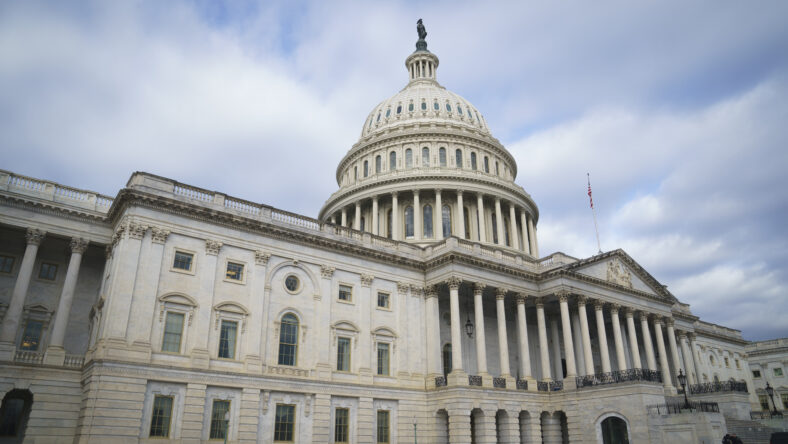Report: Settlement in St. Louis Rams Lawsuit Reached for $790 Million.
The contentious lawsuit between the city of St. Louis and the NFL over the relocation of the Rams to Los Angeles has come to a close with a settlement for $790 million dollars, according to the St. Louis Post-Dispatch . The deal was made and will be announced this morning once all NFL owners are notified. The settlement will reportedly not include a new team for St. Louis and it’s unclear how much of it will be paid by Rams owner Stan Kroenke and how much will be paid by the league.
The paper reported that negotiations went on for hours Tuesday and continued late into the night to finalize a deal. Attorneys for Rams owner Stan Kroenke were leading the effort, the paper reported. Numbers were not initially officially disclosed but one local reporter accurately estimated the figures could be in the $750-800 million dollar range.
Lawyers repping the city, county and Regional Convention and Sports Complex Authority met with NFL attorneys during a mediation session. The NFL was apparently rushing to settle the matter before an upcoming trial slated for January. Also, there was a contempt of court hearing fast approaching where the Judge in the case was going to decide if multiple high-level NFL owners complied with his order to hand over their detailed private financial information. If not, those owners could have faced fines and punitive measures. The Judge had earlier approved the city’s right to pursue punitive damages against multiple owners that served on the league’s committee on Los Angeles expansion.
The lawsuit, which alleged damages exceeding a billion dollars due to the city from the relocation of the NFL team has been going on since 2017. The NFL’s compliance with its own relocation policy was at the heart of the suit, with city officials alleging that the NFL defrauded the public and municipalities that depended on its representations that it would work to keep the team in St. Louis. City officials and vendors expended considerable money to work with the team, including $18 million dollars proposing a new waterfront stadium. The city alleged that all along, the ownership had already made up its mind long ago to relocate the team and its efforts were therefore fruitless. The NFL approved the Rams’ move in January 2016 after owners voted on the decision.
The suit alleged breach of contract, fraud, unjust enrichment and tortious interference in business relationships by the Rams and the league.
Tension had been building recently between Kroenke and other NFL owners. The Rams owner had originally promised to cover their legal costs but as the lawsuit dragged on with the majority of rulings in favor of St. Louis et. al, Kroenke allegedly threatened to pull out of that indemnification agreement. Reports of furious owners were leaked to various media outlets.
The NFL through its spokesman had repeatedly said it would continue to defend the lawsuit alleging it had no merit. “While we understand the disappointment of the St. Louis fans and the community, we worked diligently with local and state officials in a process that was honest and fair at all times,” said the NFL.
The departure of the team resulted in the city losing millions upon millions of dollars in tax revenue and tourism sales, and the city had requested it be compensated for future earnings it expected that it lost when the team relocated.
Exhaustive discovery in the case revealed communications both public and private that indicated the Rams ownership had a longstanding plan to relocate the team despite representations to the contrary.
Notably, St. Louis fans have been infuriated by documented contradictions, characterized by many as outright lies, told by Rams executive Kevin Demoff and there was a tremendous amount of attention on NFL commissioner Roger Goodell’s promises that the league would strictly follow its relocation guidelines, which were created decades ago to help the NFL avoid antitrust liability.
The NFL claimed that its relocation guidelines, which require good-faith negotiations between teams and host cities are not a contract with third party beneficiaries. In fact, the policy was not negotiated between the parties, could be changed at any time and did not place any obligations on the city.
However, the Judge ruled in favor of the city, saying in his opinion the NFL’s internal policy appeared to be a contract between the league and the plaintiffs as third party beneficiaries even though they were never parties to any signed contract. The Judge reasoned that because some of the language appeared to place obligations on the team and NFL, he believed the policy to be a contract, among other extremely technical interpretations. The rulings were controversial and criticized as resulting from a biased venue. Attempts by the league to remove the lawsuit out of St. Louis in the interest of fairness were denied.
Many fans still hope the NFL will give St. Louis another team to make up for its pain and suffering as a result of such a poorly handled relocation mired in controversy and a longstanding legal battle. That battle is now finally over, according to reports but for many passionate football fans, still without a team, the wounds and bitterness may linger.
Categorized:Breaking News LOJ Exclusives NFL The Latest



